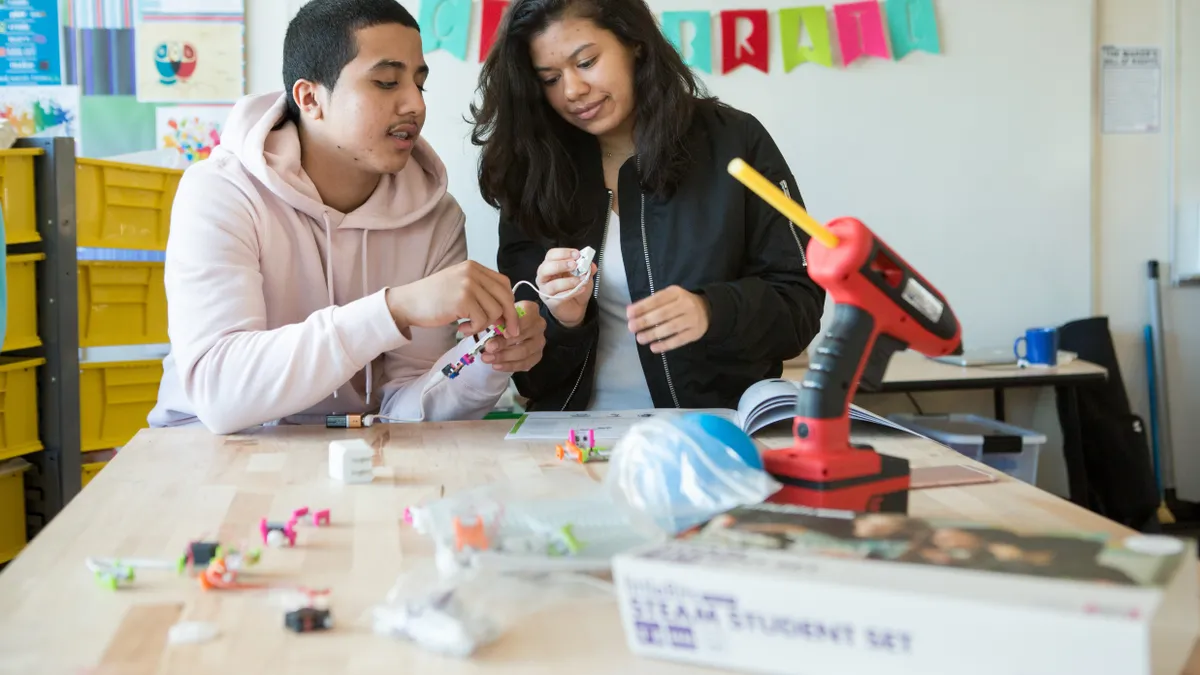Dive Brief:
- Some high schools in Philadelphia are betting on project based learning (PBL) as the way to prepare their students rather than building classes around standardized tests, according to the Hechinger Report.
- Several of the schools report that challenging, innovative PBL with collaboration and self-reflection teaches the skills that employers in several surveys say they are looking for.
- Officials in the high-poverty school district believe prioritizing such learning will pay off for the students, though it is difficult to show its value when so much emphasis is placed on repeated test results.
Dive Insight:
While the article points to a survey by the American Management Association that lists skills desired by employers in line with project based learning, a recent report from the World Ecomonic Forum also has listed 10 skills that employers will want in 2020 based on a survey of 350 executives, which found similar results that support an emphasis on some of the goals of PBL.
The WEF highlights skills employers believe educators need to make a priority, including cognitive flexibility, emotional intelligence, creativity, critical thinking, and the ability to collaborate, negotiate, make decisions and solve problems.
The Buck Institute, which advocates for project based learning, says the approach is more effective even than test prep in preparing students for standardized testing, though educators sometimes say they avoid PBL because they must prepare students traditionally for tests.
Harvard professor and testing expert Daniel Koretz's recent book, "The Testing Charade," suggests while testing can assess learning, the current atmosphere has made it “an expensive and harmful intervention that does little to improve the practices it purports to measure, instead feeding a vicious cycle of pointless test prep.” Koretz says to measure student achievement, educators should use effective testing but also weigh the quality of school culture and teaching practices.
According to a Portland State University report, educators should also assess learning longer-term and look at graduation and college acceptance rates, as well as enrollment in advanced placement courses.







 Dive Awards
Dive Awards






